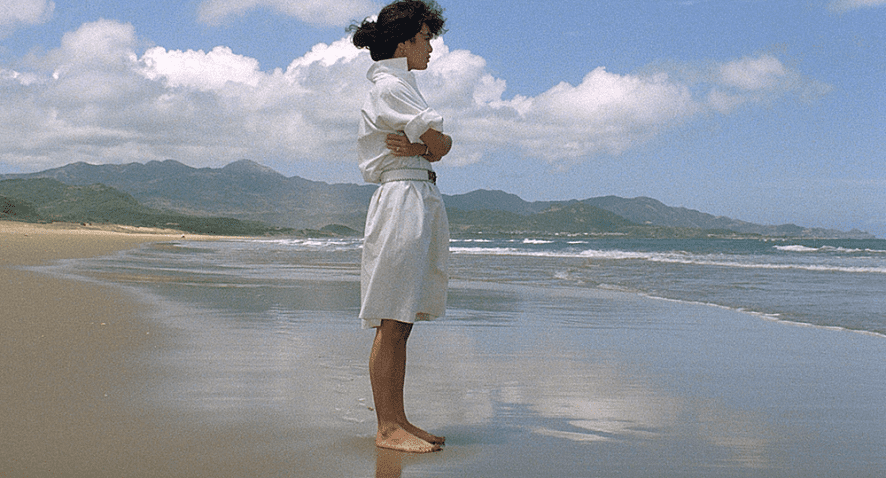Often regarded as the feature which ignited what ultimately was titled the Taiwanese New Way, Edward Yang's “That Day, on the Beach” set the tone for his works and was also the logical next step from his short films, both in terms of narration and aesthetics. As the feature has recently been restored and screened in many international festivals, together with his other works such as “Yi Yi” and “A Bright Summer Day”, audiences can experience for themselves how the themes of this director expanded over time, and also his keen eye on developments, on the political, social and economic level, which would shape the lives of many people, even outside Taiwan. Given the pressures on young people to become mature even quicker nowadays in the age of digitization, Yang's nostalgic and often skeptical look at his country perhaps has become increasingly relevant, besides being a showcase of elegant storytelling and connecting narrative strands.
That Day, on the Beach is screening at Five Flavors Asian Film Festival

After having been apart for 13 years, high-school friends Jia Li (Sylvia Chang) and Tan Weiqing (Terry Hu) meet again in Taipei for coffee and to chat about their lives. While the former has become an internationally renowned concert pianist who is in the city only for one performance, the latter has started a business of her own. It is also a chance to receive answers, especially for Weiqing, who never had a chance to talk to her friend again after she had stopped contacting her family, following the break-up with her brother.
At the same time, having experienced the sad end of Jia Li's relationship with her brother, who was married to a wealthy wife, arranged by the elders of both families to increase his chances of becoming a doctor, Weiqing begins to reminisce about her own marriage. After running away from her parents, who were also keen on arranging a marriage for her daughter, she married Cheng Dewei (David Mao), who she fell in love with in high-school. However, after a brief period of happiness, the burden of having to make ends meet takes its toll on the young lovers and changes their relationship as well.

Considering “That Day, on the Beach” is Yang's feature debut, it already showcases his prowess in connecting the past and the present of the characters, giving his viewer an impression on the emotional turmoil their encounter has caused them. The echoes of the past, in terms of visuals and sound, carry over into the present, as Weiqing and Li meet a café in the city, highlighting how their memory and the recollections of the other persons fills in some of the blanks in their mind, defining a much bigger picture of what happened during that one summer which would mark a decisive moment in their lives. Terry Hu and Sylvia Chang give great performances as two women who have become caught in a conflict of expectations, traditions and their search for happiness, while the latter seems elusive and tough to define. They express the kind of disappointment, or rather disillusionment, after lives separated from their homes or trying to pursue aforementioned happiness.
At the same time, Yang and co-writer Nuen-Jen Wu stress how the stories of the characters have to be considered in a much bigger picture. The conflict of the aspirations of the youth and their perspectives on relationships and work collide with the experience of the parents, their traditions, prestige and the economics of the time. As with many of his other features, Yang takes his time to explore how life, the politics and economics of the time, harden and change these people, and combines these observations with the aforementioned memories. Christopher Doyle's cinematography highlights the slow changes within the characters, their world and their perception of it, while also stressing the urban landscape, suggesting their story might be the story of their generation.
In the end, “That Day, on the Beach” is a heart-felt and nostalgic look at a generation shaped by economic, political and traditional views. Edward Yang tells the story of a whole generation, their disillusionment and their disappointments, and seems to ask whether the youthful optimism or idealism of his characters was misplaced or if the world itself has crushed it.















